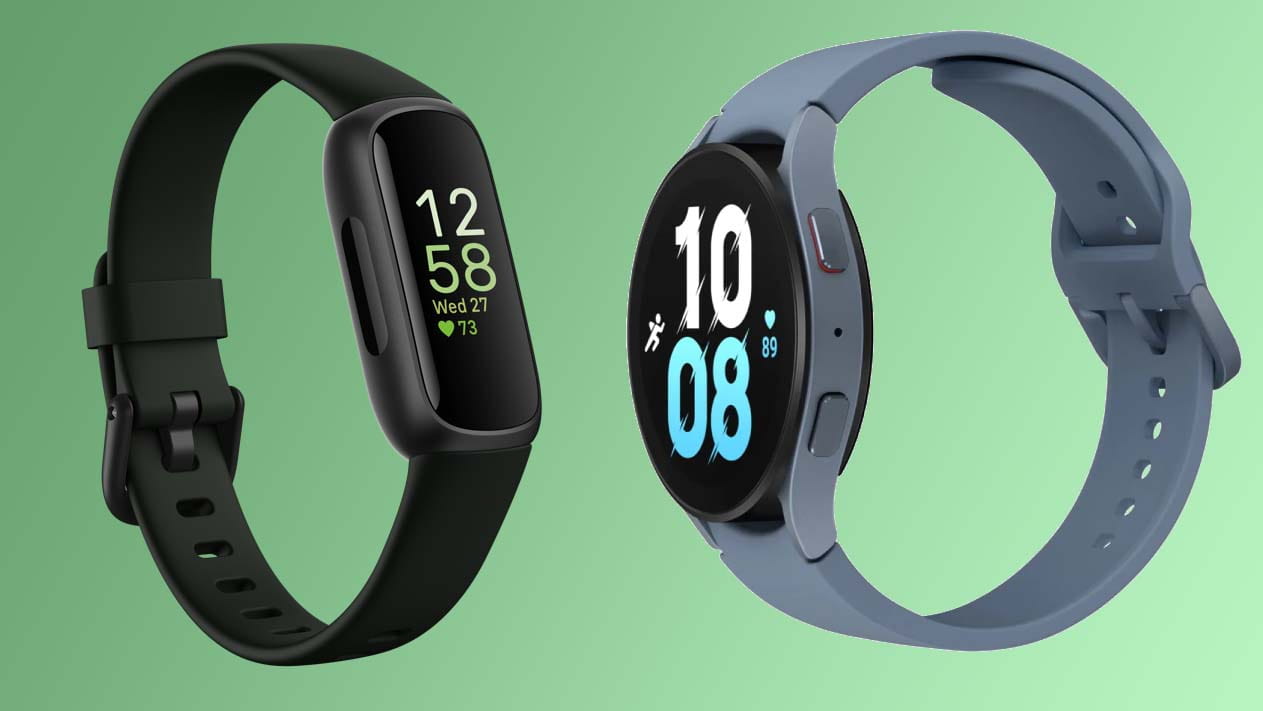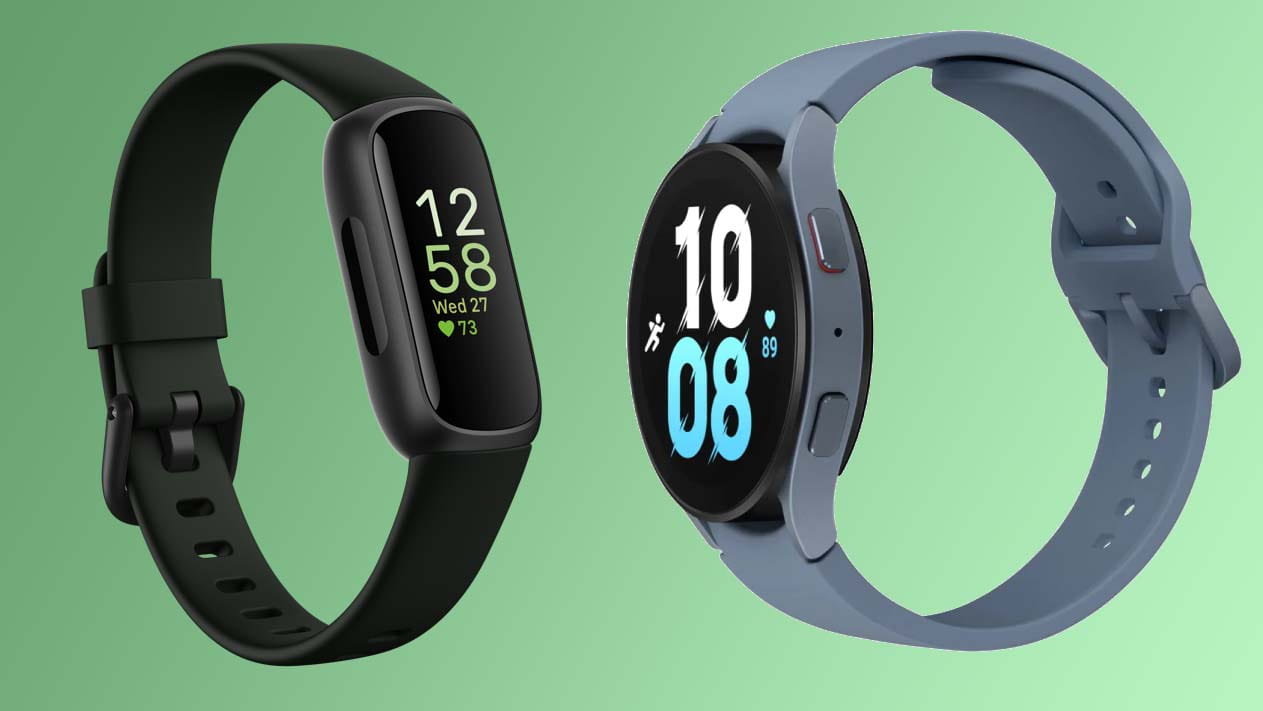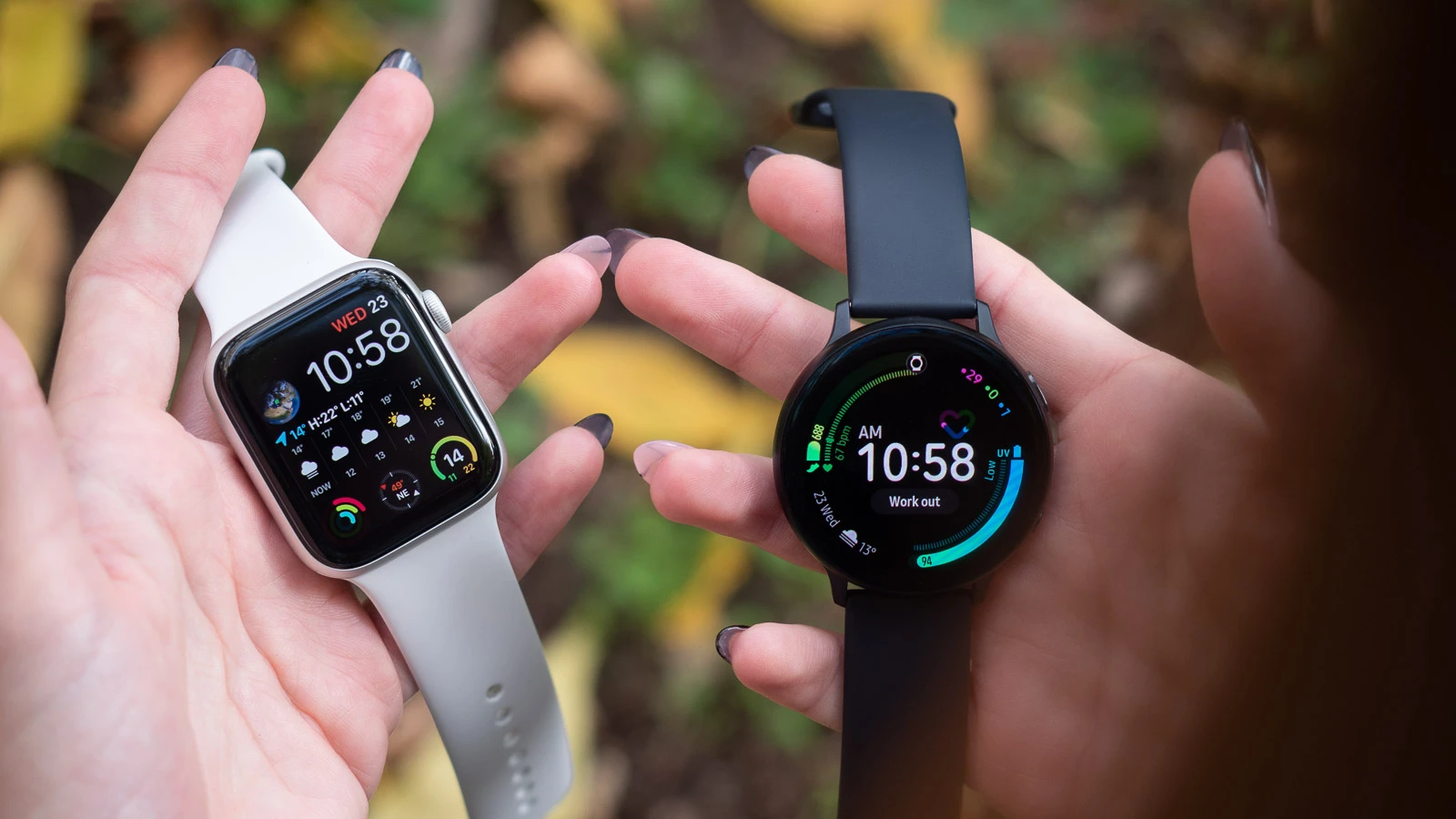Smartwatches and fitness trackers are popular gadgets today. Both offer unique features for different needs.
Smartwatches serve as mini smartphones on your wrist. They can make calls, send texts, and run apps. Fitness trackers focus on health metrics. They track steps, heart rate, and sleep patterns. Understanding their differences helps you choose the right device.
This blog post will explore the key differences between smartwatches and fitness trackers. We’ll look at their main features and functions. By the end, you’ll know which one suits your lifestyle better. Let’s dive in and compare these two tech gadgets.

Credit: www.saga.co.uk
Introduction To Wearable Technology
Wearable technology has seen a rapid rise in recent years. These gadgets are now an essential part of our daily lives. They help us stay connected, track our health, and much more. Understanding the difference between smart watches and trackers can help you choose the right device for your needs.
Brief History
Wearable technology started many years ago. The first notable device was a simple wristwatch. Later, devices like pedometers emerged, helping people keep track of their steps. Over time, technology advanced. Devices became more sophisticated and multifunctional.
Emergence Of Smart Devices
Smart watches and trackers have become popular. They offer various features. Smart watches do more than tell time. They allow you to receive notifications, make calls, and access apps. Trackers focus on health and fitness. They monitor heart rate, sleep patterns, and activity levels.
Both devices have their unique benefits. Smart watches provide a broader range of functions. Trackers are often more affordable and simpler. Knowing what you need helps you choose the right device.
Defining Smart Watches
Smart watches are wearable devices that offer more than just telling time. They combine the features of a traditional watch with advanced technology. These devices can connect to your smartphone, providing notifications, apps, and more. Smart watches have become popular due to their versatility and convenience.
Key Features
Smart watches come with a variety of features. They can track your fitness activities and monitor your heart rate. They offer GPS for navigation and support for various apps. Some smart watches even allow you to make calls and send texts directly from your wrist. The display is usually touch-sensitive, making it easy to interact with the device.
Popular Models
Several brands offer popular smart watches. Apple Watch is known for its sleek design and powerful features. Samsung Galaxy Watch is another favorite, offering a robust set of tools. Fitbit also offers smart watches, blending fitness tracking with smart features. Each model has its own strengths, catering to different needs and preferences.
Exploring Fitness Trackers
When it comes to fitness, technology has given us several handy tools to keep our goals on track. Among the top contenders are fitness trackers. These devices are designed specifically to help you monitor your health and fitness activities. Let’s dive into what makes fitness trackers unique, and why you might want to consider one.
Core Functions
Fitness trackers are built to focus on your health metrics. They primarily track steps, monitor heart rate, and analyze sleep patterns. If you’re someone who loves to keep an eye on daily activity levels, these features are indispensable.
Many fitness trackers also offer calorie counting, which is a great feature if you’re watching your intake. Some advanced models can track specific activities like running, swimming, and cycling. This makes it easier for you to get detailed insights into your workouts.
One unexpected insight I discovered was how motivating it can be to see your progress visually. The data can push you to take that extra step or add that extra rep. Have you ever wondered how much more active you’d be if you had real-time data at your fingertips?
Leading Brands
When choosing a fitness tracker, knowing the leading brands can be helpful. Fitbit is a top name in this space. They offer a variety of models ranging from basic to advanced, catering to different needs and budgets.
Another popular brand is Garmin. Known for their GPS technology, Garmin trackers are great for outdoor enthusiasts. They provide accurate data and are built to withstand rugged conditions.
If you’re an Apple fan, the Apple Watch also offers excellent fitness tracking features. Although it’s primarily a smartwatch, it includes comprehensive health monitoring options. This dual functionality can be a big plus if you want more than just fitness tracking.
Consider what features are most important to you. Whether it’s affordability, advanced tracking, or brand loyalty, there’s likely a perfect fitness tracker out there for you.
What features do you think you’d benefit from the most in a fitness tracker? Share your thoughts and let’s get the conversation going!
Comparing Smart Watches And Trackers
Smart watches and trackers have become essential gadgets for many of us. They help us stay connected, monitor our health, and even manage our schedules. But what is the difference between these two popular devices? Let’s dive into the specifics to help you decide which one suits your needs best.
Design Differences
Smart watches often have a more stylish and versatile design. They usually feature larger screens, allowing for more complex interactions and a better display of information. These devices can often be mistaken for traditional watches due to their sleek and polished appearance.
Trackers, on the other hand, prioritize functionality over style. They are typically smaller, lighter, and designed to be worn 24/7. This makes them ideal for constant activity tracking without feeling cumbersome.
Have you ever felt that your watch was too bulky during a workout? A tracker might be a better fit for such activities.
Functional Variations
Smart watches are like mini-computers on your wrist. They offer a wide range of features, from receiving calls and messages to running various apps. Some models even support GPS and music streaming, making them perfect for those who want an all-in-one device.
Trackers focus mainly on health and fitness. They monitor metrics like steps taken, heart rate, and sleep patterns. Advanced models can track specific workouts, such as running or cycling, and provide insights to help improve your performance.
Do you need a device that keeps you connected on the go, or are you primarily looking to monitor your health stats?
Understanding these differences can help you make an informed choice. Whether you prioritize design or functionality, there’s a device out there that fits your lifestyle perfectly. So, which one will it be for you?
Health And Fitness Tracking
Health and fitness tracking is a key feature in both smart watches and fitness trackers. While both devices monitor various aspects of physical activity, there are notable differences in their capabilities and accuracy. Understanding these differences can help you choose the right device for your health needs.
Monitoring Capabilities
Smart watches often provide a wide range of health monitoring capabilities. They track steps, heart rate, sleep patterns, and even stress levels. Some models include GPS for tracking outdoor activities. This makes them versatile for many types of users.
Fitness trackers, on the other hand, focus more on specific health metrics. They excel at tracking steps, calories burned, and basic heart rate monitoring. Some advanced models also offer sleep tracking and stress measurement. Their primary goal is to provide detailed insights into physical activity.
Accuracy And Data
Accuracy varies between smart watches and fitness trackers. Smart watches use advanced sensors to provide more precise data. They often include ECG and SpO2 sensors, which offer detailed health insights. This makes them suitable for users needing accurate health data.
Fitness trackers aim to provide reliable data on basic health metrics. Their sensors are designed for everyday use. While they might not be as advanced as smart watches, they still offer valuable insights. They are ideal for users focusing on general fitness and activity levels.
Connectivity And Compatibility
When choosing between a smart watch and a tracker, connectivity and compatibility play a crucial role in your decision. Both devices offer unique ways to stay connected and manage your health. Understanding these differences can help you make an informed choice.
Smartphone Integration
Smart watches often provide a deeper level of smartphone integration. They sync seamlessly with your phone, allowing you to receive notifications, make calls, and even respond to messages directly from your wrist. This level of integration can be a game-changer for those who need to stay connected throughout the day.
Trackers, on the other hand, tend to offer more basic smartphone integration. They might notify you of calls and texts, but typically do not offer the same level of interaction. This can be sufficient if your main goal is to monitor your fitness without the distractions of a full-fledged smart watch.
App Ecosystems
Smart watches usually come with access to a broader app ecosystem. Whether you want to track your workouts, check the weather, or even play games, there’s likely an app for that. This extensive app support can make your smart watch a versatile companion for various tasks.
Trackers are more focused on fitness and health-related apps. They often come preloaded with basic apps for tracking steps, heart rate, and sleep patterns. While they may not offer as many apps as smart watches, they excel in delivering targeted fitness data without unnecessary extras.
Think about what kind of integration and apps you need. Do you want a device that acts as an extension of your phone, or are you looking for something that focuses solely on fitness? Your answer will guide you toward the right choice. What features do you find most important in a wearable device?
Battery Life And Charging
Smart watches often have shorter battery life due to their advanced features. Trackers usually last longer with fewer functions. Charging frequency varies between the two, impacting daily use.
Battery life and charging are essential factors to consider when choosing between a smartwatch and a fitness tracker. Both devices offer unique features and benefits, but their power consumption and charging methods can significantly impact your user experience. Let’s delve into the specifics of battery life and charging to help you make an informed decision.Usage Time
Smartwatches typically have more advanced features, such as apps, notifications, and larger screens. These features consume more power, resulting in shorter battery life. Most smartwatches last between one to three days on a single charge. Fitness trackers, on the other hand, are designed to be more energy-efficient. They focus on tracking activities and monitoring health metrics. Consequently, they can last up to a week or even longer. Some models offer up to 14 days of battery life, giving you more time between charges. Think about how often you want to charge your device. If you prefer less frequent charging, a fitness tracker might be more convenient for you.Charging Methods
Smartwatches often come with proprietary chargers. These can be magnetic, clip-on, or use a charging dock. While these methods are usually straightforward, you need to carry the specific charger with you, which can be a hassle if you travel frequently. Fitness trackers usually have simpler charging methods. Many use USB charging, which can be more convenient. You can plug them into any USB port, making it easier to charge on the go. Some fitness trackers even have built-in USB plugs, eliminating the need for extra cables. Consider your lifestyle when choosing a device. If you travel often, the simplicity of USB charging might be more appealing. Have you ever been frustrated by your device running out of battery at the worst possible moment? Share your experiences in the comments below!Choosing The Right Device
Choosing the right device between a smart watch and a tracker can be challenging. Each has its own benefits. Your decision should align with your lifestyle and needs. Let’s explore the factors to consider.
Lifestyle Considerations
Consider how active you are. Smart watches are like mini computers. They offer many features beyond fitness tracking. Do you need apps, notifications, or GPS? A smart watch might be the best choice.
If you only need a device to track steps, sleep, and heart rate, a fitness tracker could be enough. Trackers are lightweight and simple. They are designed for basic health monitoring. Assess your daily activities and needs.
Budget And Preferences
Think about your budget. Smart watches are often more expensive. They come with many features. If you are tech-savvy and want more functions, investing in a smart watch might be wise.
If you prefer a simpler, budget-friendly option, fitness trackers are great. They offer the essentials without breaking the bank. Consider your preferences and financial limitations. Decide which features you truly need.
Future Trends In Wearables
Wearable technology is advancing at an incredible pace. As you explore the differences between smart watches and trackers, it’s important to consider the future trends in wearables. This will help you make informed decisions when choosing your next gadget.
Technological Advances
Smart watches and trackers are becoming more sophisticated. Imagine a watch that not only tracks your fitness but also monitors your health. Future wearables might include features like blood sugar monitoring or hydration levels. This could revolutionize how you manage your health daily.
Trackers are also evolving. They might soon offer more detailed analytics. Think of insights into your sleep quality or stress levels. These advancements could help you understand your body better and optimize your lifestyle.
Market Predictions
The market for wearables is expanding rapidly. Experts predict a significant growth in smart watches and trackers. You might see more brands offering innovative products. This means more options for you to choose from.
Consumer preferences are shifting. People want wearables that are stylish and functional. The future might bring designs that blend seamlessly with everyday fashion. Imagine wearing a tracker that looks like a sleek bracelet. Wouldn’t that be exciting?
What do you think about these trends? Are you ready to embrace the future of wearables?

Credit: www.saga.co.uk

Credit: istarmax.com
Frequently Asked Questions
What Is The Difference Between A Tracker And A Smart Watch?
A tracker monitors fitness activities like steps and heart rate. A smartwatch offers additional features like apps, notifications, and calls.
Can A Smart Watch Be Used As A Gps Tracker?
Yes, a smart watch can be used as a GPS tracker. Many smart watches have built-in GPS for tracking locations.
What Are The Disadvantages Of A Fitness Tracker?
Fitness trackers can be inaccurate, leading to misleading data. They may cause obsession over numbers. Device battery life is often short. Some models lack waterproof features. Privacy concerns arise with data sharing.
Do Doctors Recommend Fitness Trackers?
Yes, many doctors recommend fitness trackers. They help monitor physical activity, heart rate, and sleep patterns, promoting healthier lifestyles.
Conclusion
Smart watches and trackers serve different purposes. Smart watches offer more features. They include apps, notifications, and calls. Trackers focus on fitness metrics like steps and heart rate. Choose based on your needs. Smart watches suit tech enthusiasts. Trackers fit fitness fans.
Both enhance your lifestyle. Consider your priorities. Enjoy the benefits of technology. Stay connected or stay fit. The choice is yours.
